Understanding Depression
Learn about depression
Every person on the planet has experienced feelings of sadness at some point or another. Perhaps those feelings have even lasted a few days – especially following a life-changing event such as a death in the family or a divorce – before remitting. Individuals who struggle with depressive disorder, by contrast, feel a near-constant state of sadness and hopelessness, losing interest in everything they once enjoyed. Depressive disorders affect nearly every part of an individual’s life, including the way they think, act, and feel. Untreated depression can cause a number of emotional and physical problems, an inability to complete activities of daily living, and a profound state of hopelessness about the future. Depression isn’t a personality flaw or weakness, it’s a treatable mental health condition that requires long-term management and care in order to recover. There exist a number of depressive disorders, including major depressive disorder, dysthymia, and minor depressive disorder.
Major depressive disorder is known for the combination of symptoms that interfere with the ability of an individual to work, sleep, eat, study, or enjoy once-fun activities. Major depression is a disabling condition that can prevent an individual from functioning. Certain individuals may experience a single episode of major depressive disorder, while others may experience multiple episodes.
Dysthymia (or dysthymic disorder) is described as long-term – 2 or more years – symptoms that may not be quite severe enough as to affect the individual’s activities of daily living, but can result in abnormal levels of functioning or feeling good. Individuals who have dysthymia may also experience one or more episodes of major depressive disorder.
Minor depression is described as having depressive symptoms longer than two weeks that do not meet the criteria for major depression. However, without treatment, minor depression can easily become major depression.
It’s important to note that many people who are diagnosed with unrelated medical conditions such as a heart attack or stroke are at greater risk for developing depression. As these individuals are forced to deal with a crisis situation as quickly as possible, medical physicians often neglect or forget about the emotional needs of their patients. Individuals with chronic health conditions who develop depression should always seek treatment for their depression, as well as their health condition, so that the two disorders do not worsen.
Many individuals who struggle with depressive disorders do not seek treatment even though most who seek treatment find that their depression abates. There are a number of effective treatments for depression, including medication management, therapies, and other methods that allow a depressed individual to learn to live a happy and productive life. At Delta, we’re fully committed to helping you understand your depression and help you treat the symptoms that have left you hopeless and in despair so that you can go on to live a happy, functional life.
Statistics
Depression statistics
Depressive disorders are one of the most common mental illnesses in the United States. Every year, approximately 6.7% of adults (or 12 million people) living in the United States experience depressive disorders; only about two-thirds of these individuals seek treatment. Women are 70% more likely to experience depression than men.
Co-occurring Disorders
Depression and co-occurring disorders
Depression rarely occurs in the absence of other medical or mental health conditions. The most common co-occurring disorders include:
- Substance abuse
- Anxiety disorders
- Alcoholism
- Schizophrenia
- Eating disorders
- Cancer
- Multiple sclerosis
- Diabetes
- Heart disease
- Stroke
Causes and Risk Factors
Causes and risk factors of depression
Depression is not thought to be the result of a single factor, but rather a complex combination of factors working together to cause depressive disorders. The most common causes for depression include:
Genetic: Certain types of depression tend to run in families, however, depression can also appear in individuals who have no prior familial history of depressive disorders. It’s likely that depression may be influenced by a number of genes working together.
Brain Chemistry: Depression appears to be, in part, a disorder of the brain. MRI scans of the brains of depressed individuals’ show a change in structure and function from MRI scans of non-depressed individuals.
Environmental: It appears that for some individual’s depression may begin after a particularly traumatic life event, such as the loss of a loved one, trauma, divorce, or other stressful situations.
Psychological: Individuals who are depressed often attempt to self-medicate away the depressive symptoms by engaging in drug and alcohol abuse. Over time, this can lead to a substance addiction problem, which can worsen the symptoms of depression.
Signs and Symptoms
Signs and symptoms of depressive disorders
The symptoms of depressive disorders can vary in intensity from person to person, based upon length of symptoms, support structure, and individual temperament. The most common symptoms of depression include the following:
Mood symptoms:
- Sadness
- Hopelessness
- Irritability
- Unhappiness
- Frustration
Behavioral symptoms:
- Withdrawing from once-pleasurable activities
- Withdrawing from loved ones
- Spending increasing amounts of time alone
- Decline in scholastic or occupational functioning
- Inability to meet responsibilities at home, work, or school
- Crying spells, often for no reason
- Trouble concentration
- Inability to make a decision
- Poor memory function
- Behaving pessimistically
Physical symptoms:
- Sleep disturbances – insomnia or hypersomnia
- Eating more or less
- Weight loss or gain
- Reduced sex drive
- Slowed thinking
- Fatigue
- Slowed speaking
- Decreased energy
- Unexplained physical maladies
- Slowed body movements
Psychological symptoms:
- Agitation or restlessness
- Anger
- Feeling worthless
- Guilt
- Fixating on past failures
- Thoughts of death
- Feeling empty inside
- Thoughts of suicide
- Suicide attempts
Effects
Effects of depressive disorders
The effects of depressive disorders do change from person to person, depending upon length of symptoms, efforts toward treatment, and life circumstances. The most common effects of untreated depression include:
- Social isolation
- Insomnia
- Anxiety
- Alcoholism
- Substance abuse
- Familial conflicts
- Job loss
- Crumbling interpersonal relationships
- Financial hardships
- Self-injury
- Suicide













